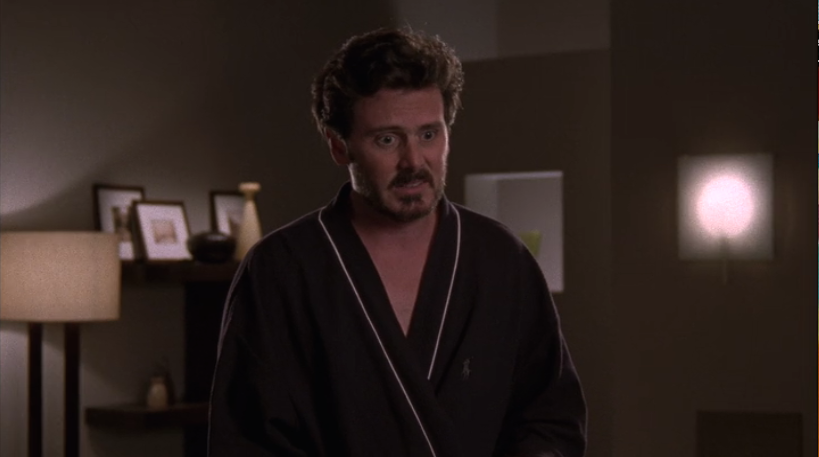How Gilmore Girls Do Money: Jason “Digger” Stiles

“So tell me,” Jason said. “Would you still find me attractive if I were poor?”
“Of course,” his date said, because they always said “Of course,” or—if they were a bit cleverer—something like “I thought I already showed you how attractive you are.”
The problem was that, as soon as they smiled and flattered and avoided his question, Jason stopped finding them attractive.
No, seriously, he wanted to say. If we hadn’t just spent the night eating dinner in a private room at the China Garden, if you hadn’t slept in my guest room with its 256-book library and fully-stocked minibar, if you weren’t currently wearing one of my luxury bathrobes and gazing lovingly at me over a $14,000 kitchen island, would you still be in this room?
Because Jason knew that he would not have brought any of these women back to his home if they weren’t wealthy, or successful, or had wealthy parents. “I need someone who can keep up with me,” he always said, which meant that they needed to say “wow, this is really good coffee” after he gave them a perfectly poured-over cup, but not “I never knew coffee could be this good.”
The point was that they should know that life could be this good, if you had the means to afford it. Jason had tried the thing where he invited younger, less-experienced women into his world, and although there was a certain pleasure into showing a 25-year-old his guest room, waiting for her to comment on his collection of Jane Austen (they always mention the Austen) and then pulling another volume off his shelf and saying “You know, if you like Austen, you’re going to love this,” he had grown tired of introducing young women to their first Chuck Palahniuk, their first fine dining experience, their first private room, their first knowledge that there even was a private room and that people like Jason spent their whole lives in special places, tucked away from the real world the way his own bedroom was always tucked away from the rest of his apartment; inaccessible, unobserved, undisturbed.
And yet he always spoiled it by asking. He wanted to spoil it, pouring too much water over the coffee before the bloom had a chance to grow. He wanted to hear these women lie so he could say they’re not good enough for me and then not feel badly about finishing breakfast, returning to the guest room if there was time, and then never calling them again.
Lorelai had said “no.” She had been the only person to say she would not be in this room if he were not a rich man.
He spoiled that cup of coffee too.
Once a woman had teased back “and would you still love me if I were old and gray?” reminding him of the folktale—or was it a New Yorker comic?—where the man says yes and the woman instantly turns into a crone. The thing these women didn’t understand was that the same thing could happen to him at any time. Like, he’d never be poor, but he could lose his company just like he lost the last one, and like he had been kicked out of the one before that. He’d lost more money than most people would ever earn, and any woman he dated needed to understand how vulnerable and precarious his life was. They needed to love him when he was on top, and they needed to love him when he was on the bottom.
But Jason couldn’t say “Look, I go through some seriously angry periods and sometimes I get depressed, and once you get to know me you’re going to realize that I’m not always this charming and attentive. Sometimes I overreact to things. Sometimes I shut down and spend three days in my bedroom. I like routine and I don’t like noise and I feel uncomfortable when I’m not in control of situations and I’ve never actually read Jane Austen.”
So he asked, instead, if the woman in his kitchen would still find him attractive if he were poor. It didn’t quite mean the same thing, but it would give him the same answer.
Support The Billfold
The Billfold continues to exist thanks to support from our readers. Help us continue to do our work by making a monthly pledge on Patreon or a one-time-only contribution through PayPal.
Comments